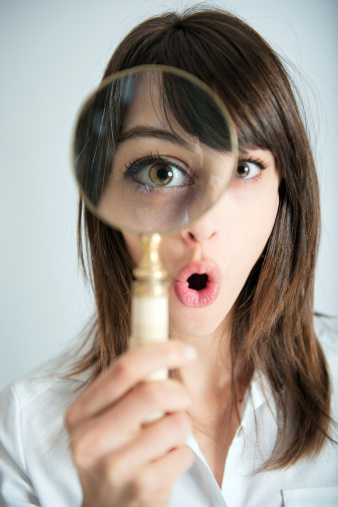 Your eyesight is one the most precious senses you possess. Without it, you would live in a world of perpetual darkness. Thanks to your eyesight, you get to enjoy all that life has to offer, which is why you should not take it for granted. Taking care of your eyes should be a top health priority. Most people tend to ignore this fact, yet your eyesight is not guaranteed to work perfectly for the entire duration of your life. Much like your heart, muscles, skin, and weight, you must maintain your eyes as well. So how do you go about doing this?
Your eyesight is one the most precious senses you possess. Without it, you would live in a world of perpetual darkness. Thanks to your eyesight, you get to enjoy all that life has to offer, which is why you should not take it for granted. Taking care of your eyes should be a top health priority. Most people tend to ignore this fact, yet your eyesight is not guaranteed to work perfectly for the entire duration of your life. Much like your heart, muscles, skin, and weight, you must maintain your eyes as well. So how do you go about doing this?
Keeping your eyes protected from the sun and dry conditions may seem obvious to some people, but what about what you eat? What about the things you can do on your own to keep your eyes safe and healthy? Have you ever considered that your diet can provide your eyes with protection, prevention, and overall health benefits and conditioning? It’s true!
So, let’s talk about five easy, yet essential tips to keep your eyes healthy.
Tip 1: Eat right to protect your sight.
Surely you have heard carrots are good for your eyes. But eating a diet rich in fruits and vegetables is also important. Make a special effort to include dark leafy greens such as spinach, kale, or collard greens. Research has also shown there are eye health benefits from eating fish high in omega-3 fatty acids, such as salmon, tuna, and halibut.
Tip 2: Maintain a healthy weight.
Advertisement
Being overweight or obese increases your risk of developing diabetes and other systemic conditions that can lead to vision loss, such as diabetic eye disease or glaucoma.
Diabetes is a big one. If you have diabetes, you could be facing vision loss if you do not treat the condition properly. While some symptoms can be corrected with a prescription for correctional lenses, if the tissue in your eyes has degenerated due to diabetes, then you may experience, scarring, vision loss, and damage that deteriorates your level of vision. Due to diabetes, you can also develop cataracts, secondary glaucoma, and macular damage, so you must treat your diabetes to prevent vision loss.
Tip 3: Renewing Your Prescriptions
This goes for your eyeglasses, contacts, and other medications that you may be taking for your eyes. You must make it your top priority to go and see your eye doctor once a year, every year, for your check-up. This will ensure your prescription is up to date and that your eyeglasses and contacts are set properly to meet your eye’s changing needs. As you age, your eyes unfortunately will decline in strength. It’s up to you to be proactive and ensure you are safeguarding your vision by staying on top of all your prescriptions.
Tip 4: Have a comprehensive dilated eye exam.
You might think your vision is fine or that your eyes are healthy, but visiting your eye care professional for a comprehensive dilated eye exam is the only way to really be sure. Many common eye diseases such as glaucoma, diabetic eye disease and age-related macular degeneration often have no warning signs. A dilated eye exam is the only way to detect these diseases in their early stages. In addition, knowing history of your family members’ eye health before such visit will be a great value add since this will help to determine if you are at higher risk for developing an eye disease or condition.
Tip 5: For the Ladies
One very important tip for women wearing make up is to remove make up carefully since it can cause problems to the eyes if left on for very long periods of time or if eyes are not washed properly between applications. Also it is advisable to store make-up in a dry and clean place to prevent the build-up of bacteria, which has the potential of causing eye infections. And as much as possible, use only those makeup products that are made from natural substances.
It is also worth mentioning that in recent years, advertisers and eye health promoting agencies have indicated that sunglasses is a must-have accessory for eye health! It is recommended to choose a pair that is labeled as providing 99 to 100 percent protection from UVA and UVB rays. Sunglasses eliminate UV radiation from being absorbed by your retina that can lead to cataracts, sunburn on your retina, (called Photokeratitis), or even cancer.
After all, we are lucky to have the gift of vision and we must do our due-diligence to preserve it as long as we can.
